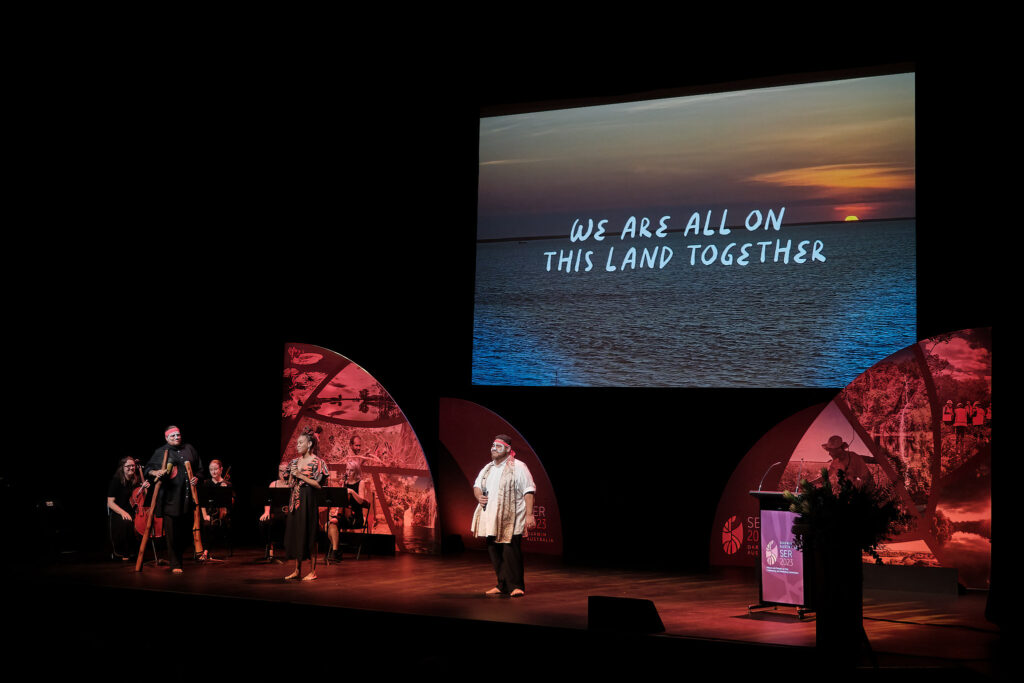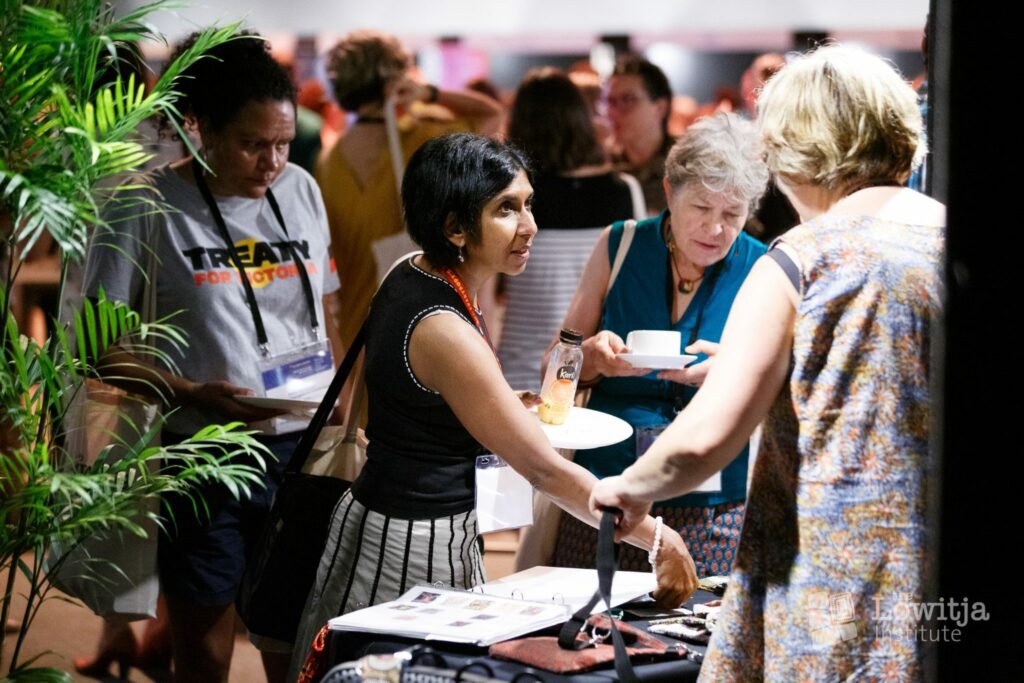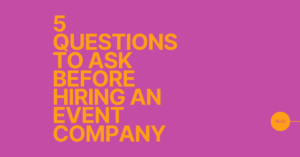
Top Tips for a Successful Conference
Planning a conference is an exciting endeavour. Pay attention to the details and you’ll ensure every aspect of your event comes together in a way that WOWs your guests. Let’s break it down one area at a time:
Vision and Blueprint
When you first start to plan your conference, it’s important to lay out a solid plan for your event and define your vision for it.
Start the planning process as soon as you can. This leaves time for slip-ups. You’ll want to set goals that capture what success looks like so each step of the way you can look back and use them as your guide for the ongoing decisions you make. This planning acts as a roadmap to keep you in line with your aspirations.
Laying out a solid plan
- Visualize the experience you intend to create. Think about exactly what you want it to achieve, and get a good feel for what you want it to look like.
- Set clear objectives and make sure that they 100% align with your vision.
- Understand your audience. Find out what they’re enthusiastic about, and what they want to get out of your conference.
About the money….
- Allocate a budget for the event that balances practicality and aspirations. Ensure you have every aspect of the event covered.
- Remember to budget for venue, speakers, marketing, and food.
- Leave a little extra for any unexpected surprises that inevitably pop up.
Staying on track
- Create an engaging and well-structured timeline.
- Set milestones that build anticipation and interest for your conference.
- Schedule regular check-ins to keep everything on track.
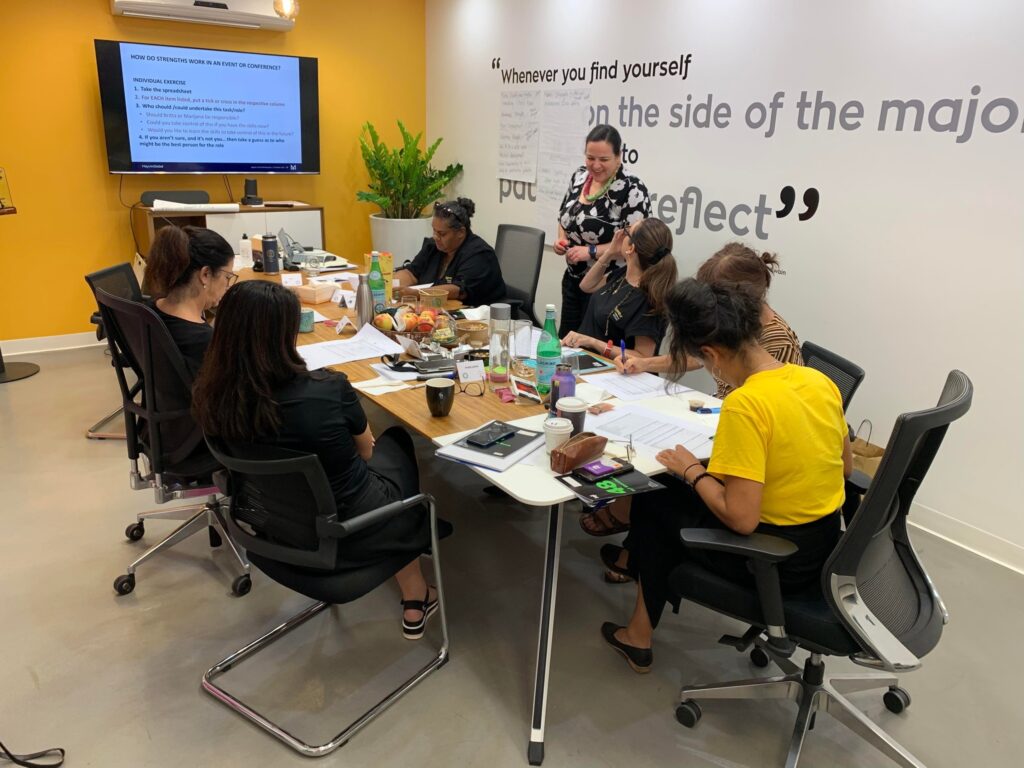
Venue and Vibes
The venue you choose can make or break an event and selecting the right one can be hard. When you find a suitable venue, one that aligns with your theme, and serves your guests’ needs, it’s one of the most significant factors contributing to a successful event.
The right venue will set the tone and contribute to the overall memorability of your conference.
What to look for in a venue
- Look for a venue that fits your conference’s character.
- Ensure it offers space, amenities and accessibility. Keeping it easy for all attendees and overall enhancing the experience.
- When you’re ready – book the venue. But make sure you walk it a few times (at different times of the day) to visualise the event in all weather, and help you formalise your vision for the conference.
Making the tech easy
- Choose the right audio and visual technology for your event. Try not to scrimp. The AV can transform the experience entirely.
- Make sure the internet connectivity is reliable. You won’t hear the end of it if you don’t!
- When it’s time for the event, have technical support on-site. Just in case anything comes up and you need a hand.
Creature comforts
- Select caterers that fit the budget and can put together a menu that complements your vision and the experience you’re going for.
- Make sure you think about those guests with special catering needs. Things like gluten free, and vegan, are very common these days. Rarely an event goes by where we won’t have these options available.
- Arrange convenient accommodation for out-of-town guests and speakers. Generally, you’ll know the destination better than them.
- Coordinate transport. This gives you a chance to keep your conference running on time, and creates a stress-free experience for attendees and guests.
Content and Creativity
The best conferences blend creativity, thoughtfulness, and practicality.
From speakers that inspire to interactive workshops, content planning is essential for ensuring that your event delivers on expectations. Balance informative materials with sparking excitement and innovation amongst your attendees.
Finding and managing speakers
- We’ve all been to conferences or events, where speakers fall flat. They don’t connect with the audience, or don’t have the energy to match the conference itself. Choose wisely!
- Look for reviews from past events the person has spoken at. Try and dig up a little video content of the speaker – it’ll all help to get a feel for the delivery and content you can expect.
- Be diligent managing speakers and other important guests. Follow up regularly with them to make sure you have all their needs met – and yours!
- Collect presentation materials well in advance, so when your conference is nearing, you’re ready to go.
Blending the perfect agenda
- Design an engaging conference agenda by mix and matching presentations, interactive sessions, and workshops to keep energy levels high.
- This is easily overlooked, but… allocate time for Q&A and feedback, encouraging guest interaction.
Materials and Handouts
- Most conferences require printed materials. Floor plans and other info can be helpful to the guest’s experience, are an opportunity to highlight sponsors, and reduce administration and questions on the day.
- Create eye-catching, informative conference materials that lean into your conference or organisation’s brand. Don’t add an overwhelming amount of information. Focus on clean, simple communication. Attendees will thank you.
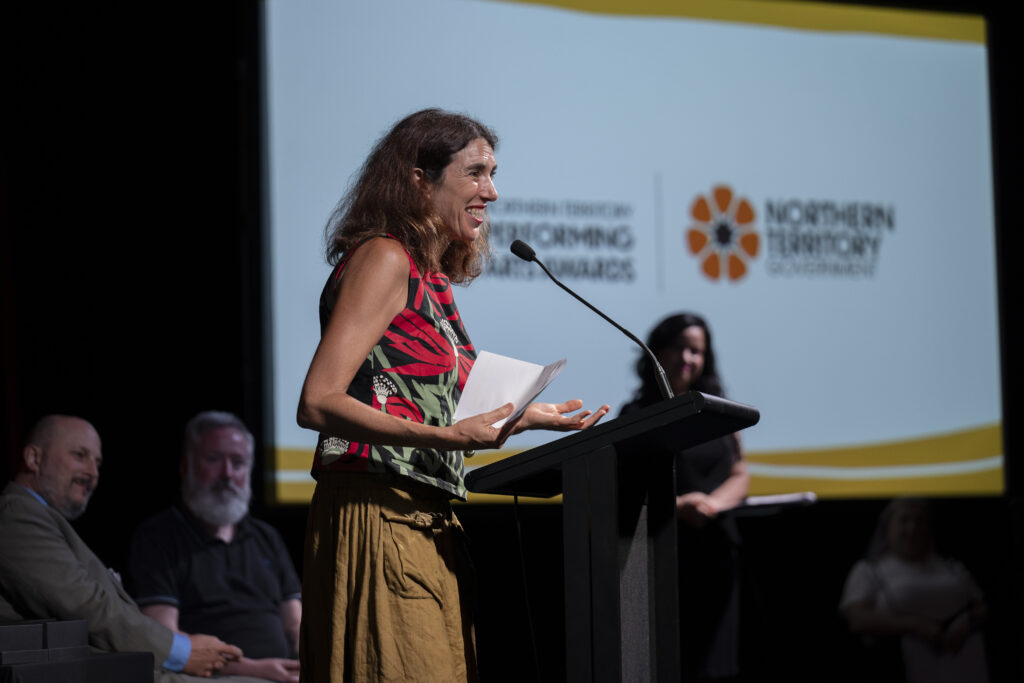
Buzz and Communication
Effective communication and raising awareness are key components of a successful conference. It’s important to craft a marketing strategy that builds anticipation for the event and gives you the chance of reaching your target audience.
Promotion and Registration
- Creating a strategic marketing plan that addresses your goals, meets your audience where they are (e.g. social media), and communicates not only WHAT the conference is, but WHY and WHO it’s for.
- Use social media and email campaigns to generate buzz.
- Set up an effective, reliable online registration system with secure payment options if needed.
Communication with Attendees
- Invites.
- Clear details.
- Communication.
Keep everyone in the loop. People have busy lives, and although this is the most important thing in your world right now, it’s not for them. Communicate clearly, and often.
On-site Management
- Arrange an easy-to-use check in process that welcomes your attendees.
- Make sure your signage is informative and creative, throughout the venue.
- Coordinate a team that can get the job done. It’ll give you and your guests confidence.
Logistics – Security, Fire, Safety, & Contingencies.
We’re not going to dive too deep into this because, honestly, it’s the onion of conference planning—you peel back one layer, and there’s always more beneath. But that doesn’t make it any less crucial. In fact, planning for logistics like security, fire safety, and contingencies is incredibly important. It’s not just about covering your liability; it’s about ensuring the safety and comfort of everyone involved. Confidence for you and your attendees comes from knowing that every possible scenario has been thought through and planned for.
Even if you’ve run conferences before, this is where things can unravel. Without thorough preparation, unexpected issues could easily throw your event off course. So, take the time to get it right, or consider enlisting professionals who specialise in this critical area.
Sustainability
Incorporating sustainability into your conference planning is more than just a trend—it’s the right thing to do.
Simple choices like;
- going digital with registrations and materials
- picking venues with good environmental practices
- offering local, seasonal catering
- making sure sure recycling is easy and clear
- implement a waste management plan
- minimise single use plastics
- protoe sustainable transporty
By focusing on these small, practical steps, you can reduce the environmental impact, set a positive example, AND create an event that resonates with your attendees.
Wrapping Up
Planning a conference is about more than checking tick boxes on a list. You’ve got an opportunity to create an experience that stays with guests forever. What an opportunity!
Own that opportunity. Consider every detail from schedule to speakers. We get to walk this planet once – let’s make it fun!
Whether you take care of it yourself, or choose to let the professionals handle it, the goal is to have a conference that WOWS.
Here are some other questions that we typically get from conference organisers when they reach out.
How does the choice of venue impact the overall atmosphere of your conference?
The choice of venue can completely change the feel of an event. And just like when buying property – location, location, location! The choice of venue can also impact the tone for your conference. For example, an art conference may work well in a historic building – where a tech conference, might be more suited to a modern building.
How can social media be used to gain attraction for your event?
Social media is a powerful tool to boost attendance, engage and inform your audience, and give your guests a sneak peek of your event. There are numerous ways to achieve this, whether through content like videos and photos, updates, or behind-the-scenes footage. Paid social ads are an excellent way to reach new audiences. However, if you’re investing money in your content, it’s crucial to ensure it’s targeted and not wasted. Social ads can be tailored by location, demographics, interests, behaviors, and job roles. Spend some time considering who is most likely to take action on your content—not just scroll past it or simply look at it, but actually become an attendee.
What makes a successful conference?
Relevant, engaging content, expert speakers, and interactive sessions can all be key to a successful conference. It only takes one moment, one new relationship, for a conference to go from ‘meh’ to massive success for an individual. You want high quality content that interests your attendees and gets them talking and one that creates organic connections through networking opportunities.
How do you plan a successful conference?
Planning a successful conference doesn’t have to be difficult, but it does require dedication and time. There’s no silver bullet—if it were easy, everyone would do it. The best advice we can offer is that success lies in the planning. The more you do it, the more precedents you have to lean on, leading to smoother operations and more time for creative aspects. Visualize the outcome you want and work backwards to the actions needed. Be prepared, though—it’s like peeling an onion. As you remove each layer, you’ll be surprised by how many more emerge underneath!
How can I ensure a conference runs smoothly on the day of the event?
Communication is key. It’s hugely important for the team running the conference, for attendees, presenters, speakers, and everyone else involved. A successful conference is impossible without timely, accurate, and effective communication. And….things WILL come up. So, make sure you have reliable team behind you for if they do.


